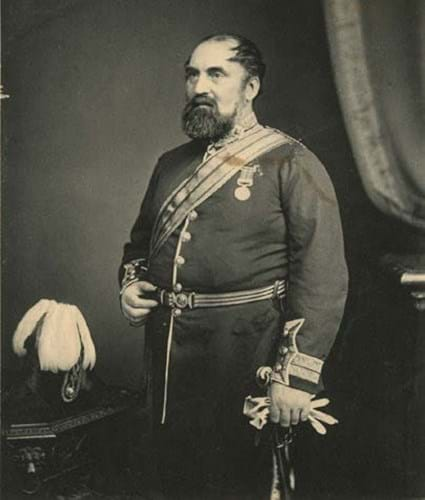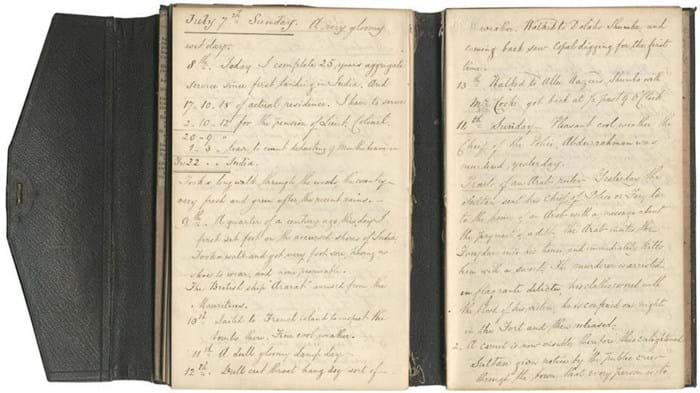
It made £45,000 against an estimate of £10,000- 15,000 in Bonhams’ (27.5/25% buyer’s premium) Travel Exploration sale in Knightsbridge on February 10.
A further hand-written autobiographical journal giving an account of Rigby’s family, his career in Persia, Zanzibar, and India, his travels in Europe and other important family events sold for £28,000, having been estimated at £4000-6000.
Both sold to the UK trade via phone bids. Consigned from a UK private source, the 16 Rigby lots overall made a £113,230 hammer total.
Colonel Rigby (1820-85) was appointed British Consul on Zanzibar in July 1858, a post he held until September 1861. His journal, which he wrote up every day, covers this period and time in London until 1863. He was candid in his words. “The trade in slaves to the Gulf is carried on in the boats of the Northern Arabs… If pursued by British cruisers, they do not hesitate to throw the slaves overboard to avoid the seizure of their boats…”
He describes a slaver ship as “a filthy stinking vessel all equipped to embark slaves, the slave deck down the hold quite full of water casks and firewood… 20 new swords, 11 guns, leg irons etc…”
In a memoir of his life, Rigby’s daughter said he “should be remembered as the first and greatest enemy of the East African slave trade”. Rigby wrote one that on one day he had been busy “writing out Certificates of Emancipation… at the rate of 300 a day… up to 2700 slaves…”.
Zanzibar was the centre of the East African slave trade. Although the British protectorate signed the first of a series of anti-slavery treaties in 1822, the region was insufficiently policed (the Royal Navy allowed only four ships to patrol a huge area of sea) and the local sultans lukewarm on the project.
During his tenure, Rigby’s found himself in the centre of succession battle between brothers Thuwaini bin Said and Majid bin Said. Problems he had to deal with included a “…harbour full of pirate boats… very troublesome… slaves were being actively shipped all night…”, and tackling Sultan Majid bin Said on the matter: “…talked seriously about the Northern Slave Trade & the little check given to it here… this system cannot continue…”
It was not until 1873 that the Anglo-Zanzibari treaty finally abolished the slave trade in the sultan’s territories, closed all slave markets and protected liberated slaves.















